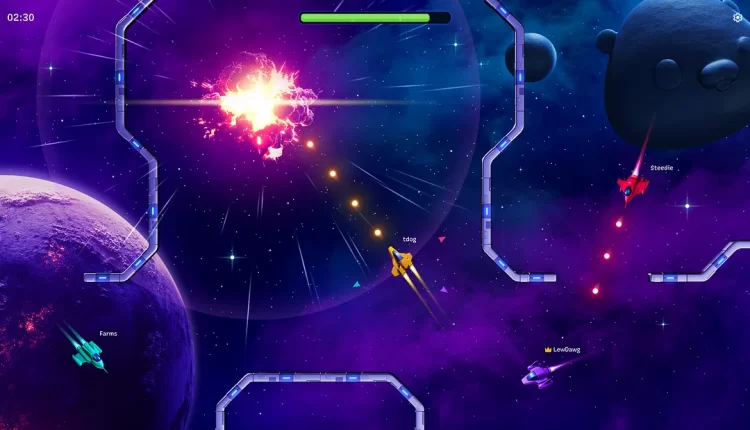Playmint’s “ditching the degens” to level up decentralized games with its playerchains

Building fully onchain games for the last three years, UK studio Playmint has an inherent drive to constantly evolve the sector technologically. And this has been underlined in its latest endeavour – Space Shooter, which it describes as the“fastest fully decentralised game in the world” and which is powered by the developer’s own playerchains technology.
Playmint’s motivation behind playerchains and Space Shooter was born after the release of its autonomous world UGC platform Downstream on Ethereum L2 Redstone in 2024.
Realising its limitations, Playmint CEO David Amor has commented, “Truthfully, the compromises of running a game on a blockchain are significant: computation is expensive; transaction times are slow; hidden information and game update loops are difficult.”
Amor points out that one particular problem is the decentralization tech used for games so far has “been inherited from DeFi and the attributes of Ethereum or its L2s”. These are not the optimal tools for most games. As a result, Playmint has shifted its focus to enhancing decentralised technology in order to make onchain games better.
So what’s the solution? According to the developer, it’s called playerchains, a “kind of technology that’s more decentralised but less crypto”: essentially it’s not run on public blockchains.
Tackling one of the core issues fully onchain games have wrestled with, Playmint CTO Iain Gilfeather said playerchains enable “decentralised games that are for playing, not speculating.” Due to public and permissionless blockchains’ inherent financial systems, games deployed on those chains are also going to be connected to money. This relationship makes their players prone to financial speculation. In contrast, Gilfeather explained that “Games on a permissioned chain, where no money exists in the first place, retain play as the dominant activity.”
Because of its game-first design, playerchains also solve a series of other practical issues such as “real-time multiplayer, familiar tick-based game development, and gasless transactions.”




